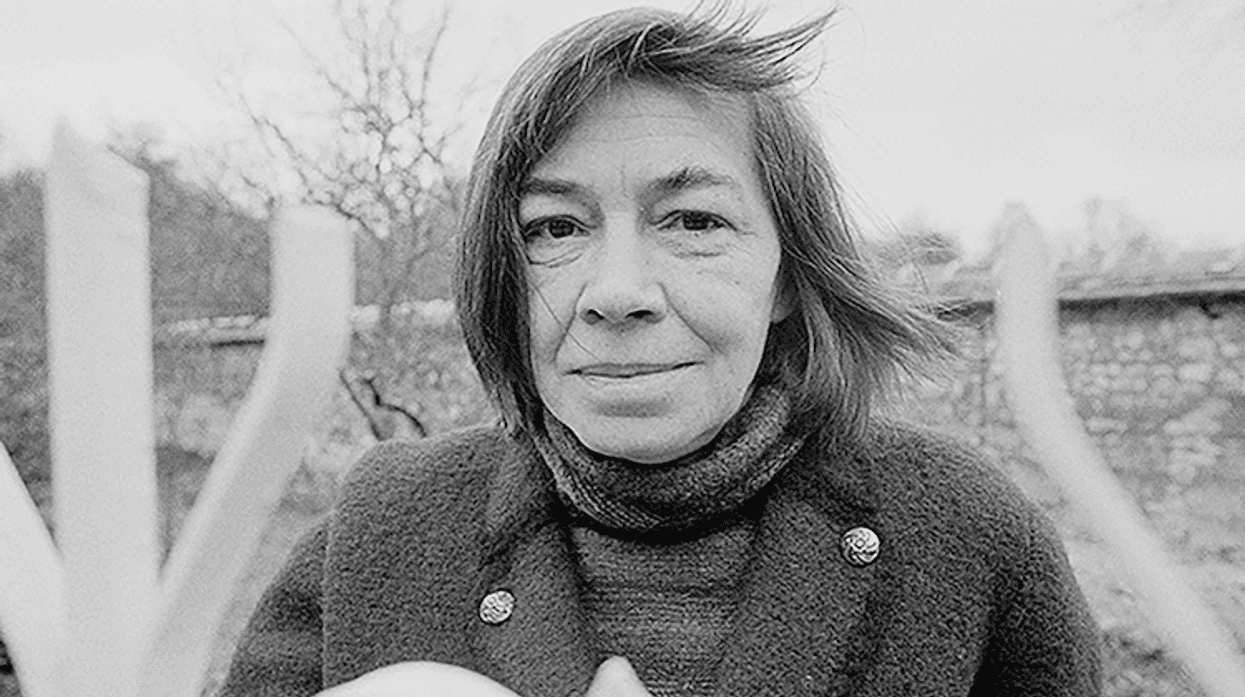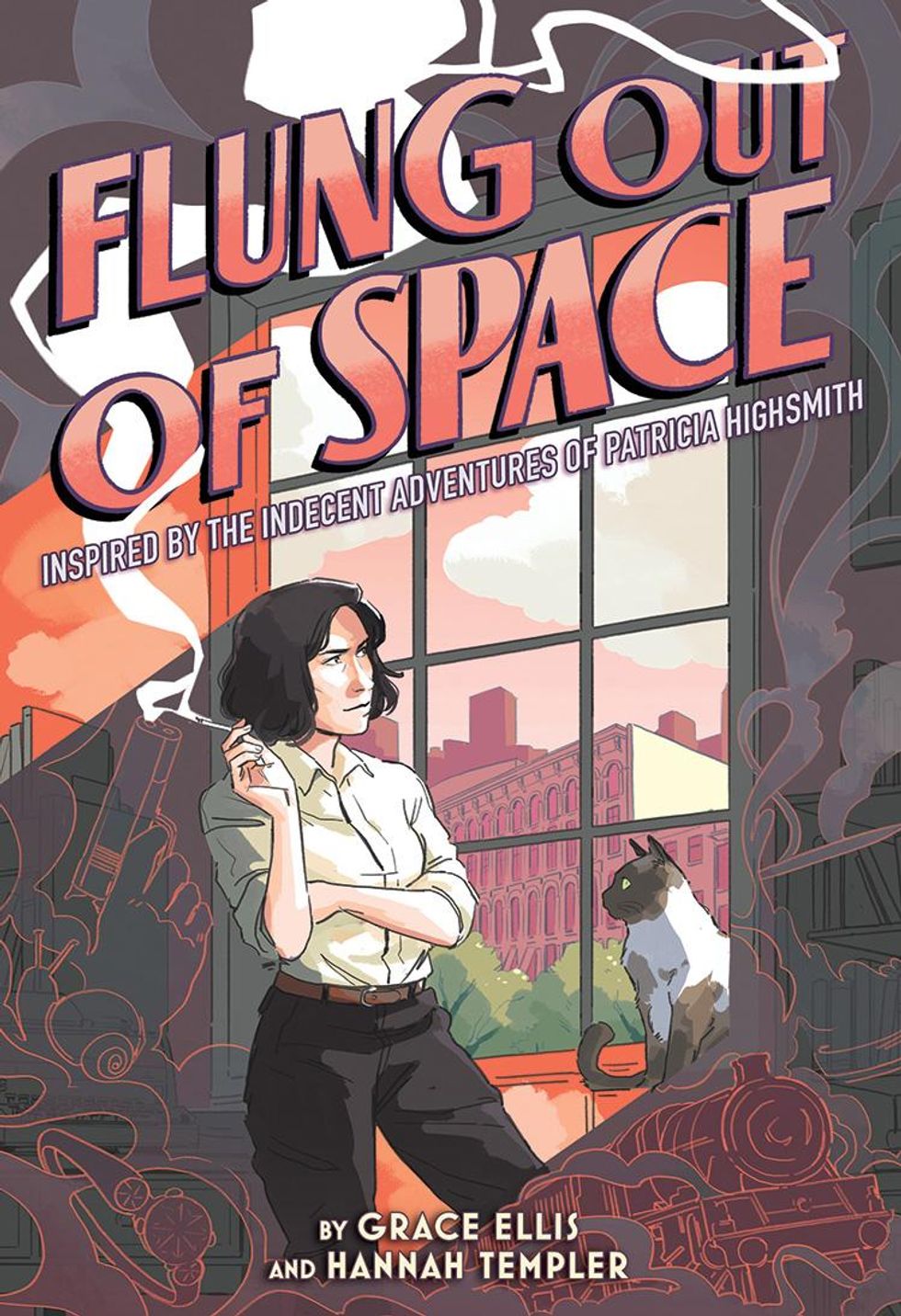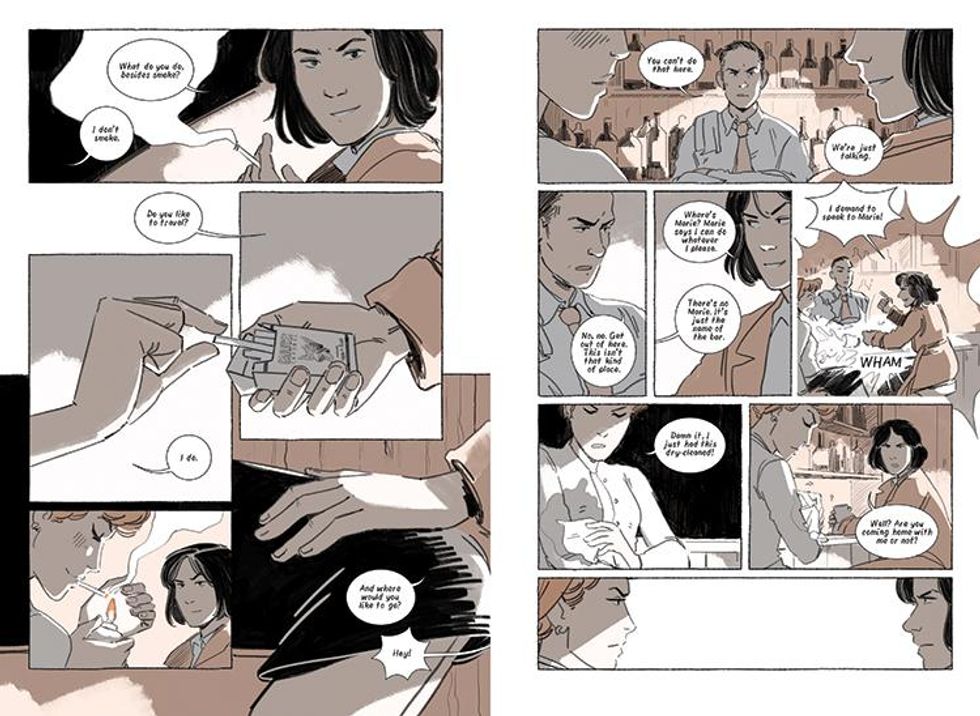The Price of Salt, adapted into the beloved film Carol, is one of the pillars of the lesbian fiction world, and rightfully so; it was the first published lesbian novel with a happy ending. But its author, Patricia Highsmith, was a complicated and flawed woman. The new graphic novel Flung Out of Space seeks to give readers a glimpse into the life of the woman who forever changed lesbian media.
Written by Lumberjanes co-creator Grace Ellis and illustrated by Cosmoknights creator Hannah Templer, Flung Out of Space tells the story of Highsmith when she was in her 20s, leading up to her first published novels: 1950's Strangers on a Train (later adapted into a film by Alfred Hitchcock) and of course, The Price of Salt (1952).

At the time, Highsmith was a "drinker, a smoker, and a hater of life" working in comics (which she also hated), in and out of conversion therapy, having one-night stands with women, and full of self-loathing.
It was during this tumultuous time, however, that Highsmith had a famous Christmas department store encounter with an older woman who became the inspiration for The Price of Salt. "While Carol is famous for not killing off its lesbian lovers, I find it equally interesting to learn that Patricia Highsmith wrote it under a pseudonym and was undergoing great personal turmoil and tragedy in her life at the time, events which fueled and inspired the fiction," Templer says. "The fact that she wrote a parallel improved reality is relatable, poignant, and even beautiful to understand as a queer person."
But as important as The Price of Salt is, and as beautiful as parts of the story are, Highsmith was an equally terrible and hateful person. She was famous for her virulent anti-Semitism, racism, and sexism, and this book shows that without compromise. She was no hero, and Flung Out of Space doesn't paint her as one.
Highsmith also spent much of her adult life hating her sexuality and trying to "cure" it. That's depicted without pulling any punches. Ellis and Templer have combined to tell the story with a proper amount of empathy and objectivity, never punishing their version of Highsmith but still showing the damage she caused to herself and others.
"I love telling stories about complicated women, and Pat is certainly complicated," Ellis says. "I want to dig into narratives that we haven't seen before. There's a certain way we talk about influential women and LGBTQ people like they're saints or rebellious in just the right ways, but the truth is more interesting."
Templer agrees, adding that while Highsmith's work is significant to many, we can't ignore who she was. "Patricia Highsmith held a lot of disgusting opinions and behaved incredibly destructively at times," she says. "While her work can be appreciated, she was famously anti-Semitic, racist, and sexist, and it would be a mistake to hold her in completely uncritical high regard."

Even with a subject who can be ugly, Templer's art is always beautiful. There's a cinematic look to her style that adds to the biopic feel of the book. And she has a keen eye for drawing women.
Flung Out of Space is more than just a beautiful biography, though. It's also a guide through an important part of lesbian and literary history. And it shows the entire picture, not just the good parts. This is one graphic novel that will stick with you.
Flung Out of Space doesn't ask readers to end what's become an annual tradition for many queer folks: a screening of Carol. Instead, it invites readers to see it as a companion piece so that they can view the movie -- and its creator -- with that knowledge and context.
This story is part of The Advocate's 2022 Love issue, which came out on newsstands in February. To get your own copy directly, support queer media and subscribe -- or download yours for Amazon, Kindle, Nook, or Apple News.






































































Charlie Kirk DID say stoning gay people was the 'perfect law' — and these other heinous quotes